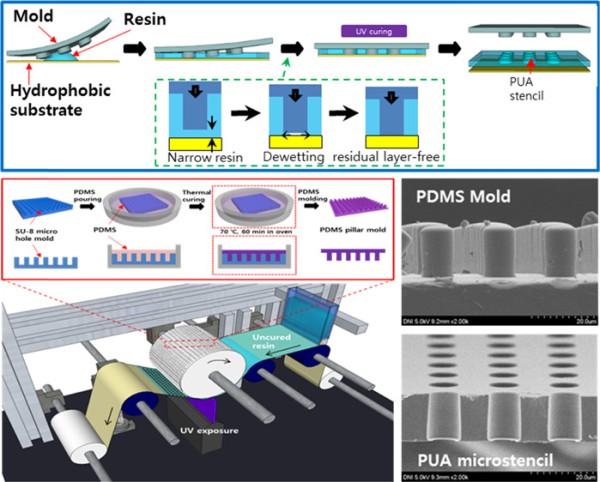Scalable Fabrication of Flexible Microstencils by Using Sequentially Induced Dewetting Phenomenon
- Journal
- ACS Omega
- Vol. (No.), pp.
- 2 (3), 1097-1103 (Mar 2017)
- Year
- 2020-2014
We present the physics of sequential dewetting phenomenon and continuous fabrication of a polymeric microstencil using dewetting phenomenon with roll-to-roll imprinting equipment. To realize dewetting-assisted residual-free imprinting, mold material, polymer resin, and substrate were selected via interfacial surface energy analysis. In addition, optimal parameters of the continuous process were also studied by experimentally comparing the resultant shape of the microstencil depending on the process speed, aspect ratio of the mold, and applied pressure. As a result, the polymeric microstencil was produced continuously in very high yields, and its maximum resolution reached 20 μm in diameter. For an easy, continuous demolding during the roll-to-roll process, the material chosen for the substrate film was paraffin-coated film, which has the surface energy low enough for dewetting while having a higher adhesion value than polydimethylsiloxane mold. This versatile, high-throughput microstencil fabrication process can be used in many applications requiring flexibility, scalability, and specific material, and high productivity.


